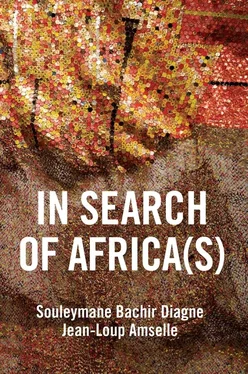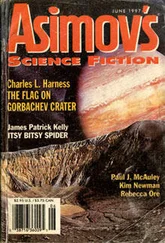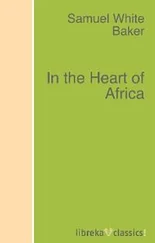‘Postcolonial’ thus becomes, so to speak, the equivalent of ‘anticolonial’. In particular, by maintaining the demand that the process of decolonization be brought to completion, going beyond the historical independence attained by former colonies formerly run by colonial powers such as Britain or France, this term easily lent itself to reappropriation by various militant circles, especially in the voluntary or communal associations that had emerged from or were caught up in the history of immigration.
This is how we can identify a second stage in the emergence of a postcolonial paradigm in France. This stage came about in the mid-2000s and was a combination of chance and the zeitgeist: January 2005 saw the launching of ‘the call of the Indigenous of the Republic’, which, a few months before the sixtieth anniversary of the Algerian uprising (it was put down by France in Sétif on 8 May 1945), aimed to establish the ‘foundations of postcolonial anticolonialism’ and to denounce the prevalence in the French nation of forms of domination and discrimination inherited from the colonial period.
Published a few weeks before the riots in the French suburbs in November 2005, the collective volume La Fracture coloniale ( The Colonial Fracture ), 8most of whose authors came from the worlds of local communities or scholarly activism such as ACHAC (the Association pour la connaissance de l’Afrique contemporaine, i.e. the Association for Knowledge of Contemporary Africa), in turn stirred up many echoes. In fact, it was only restating in postcolonial language a political slogan (‘ la fracture sociale ’ or ‘the social divide’) that had won Jacques Chirac his first presidential election ten years earlier.
The years 2005–7 saw many journals – Esprit, Hérodote, Labyrinthe, Mouvement, Multitudes – devoting special issues to post-colonial studies, while the anthropologist Jean-Loup Amselle led a charge that was as heroic and chivalrous as it was critical, 9followed by the political scientist Jean-François Bayart. 10These soon met with a response in a new collective work from the ranks of ACHAC, Ruptures postcoloniales ( Postcolonial Breaks ). 11
Tempers now seemed to be flaring between African intellectuals – such as the Senegalese historian Mamadou Diouf and the Cameroonian philosopher Achille Mbembe – and French Africanist intellectuals. It was on the basis of their training and their publications devoted to African studies, such as the Cahiers d’études africaines , edited by Jean-Loup Amselle for nearly thirty years, and the review Politique africaine , founded by Jean-François Bayart in 1980, that Amselle and Bayart conducted their critique of postcolonialism. In a certain way, the present book brings this dialogue back to the public stage, even if in actual fact it was never really interrupted, nor devoid of persistent misunderstandings.
Where was the main point of friction and hence of discord? We could say, summarily, that the Africanists criticized postcolonials for trying to reinvent the wheel and thereby giving a new lease of life to some of the essentialist and culturalist quirks of their predecessors (Léopold Sédar Senghor, Aimé Césaire, Frantz Fanon and Albert Memmi) at a time when Négritude and anticolonial critique were in the ascendant. Postcolonials, meanwhile, mocked the tendency of Africanists to reduce them to mere epigones of prestigious masters and ancestors, though they claimed to have a more complex filiation with these forebears than the mere phantasmatic projection of a new ‘strategic essentialism’ might suggest. 12
Finally, the main issue of this disagreement was without doubt the following: to what extent could a true decentring be achieved, a shift away from the Western thought that had influenced the founders of anticolonial criticism themselves and a return to more autonomous, even autochthonous, traditions of thought? And to what extent was such a decentring envisageable or possible within Western thought itself? A secondary question was: could one ‘provincialize Europe’ by making it one pole of reflection and one tradition of thought among others, without the precedence or pre-eminence it had enjoyed? Could other dialogues take place between various points and intellectual traditions of the global South, without systematically requiring Western mediation? It is undoubtedly the growing force and importance of these questions, together with an exponential polarization of the positions for or against postcolonial thought, which may explain the gradual shift to a new paradigm: that of decolonial thought.
As Jean-Loup Amselle explains on several occasions in the following conversations, the genesis of decolonial thought differs from that of the postcolonial theory first developed by Edward Said and Australian and Indian thinkers. Decolonial thought admittedly involves a similar circularity: we need to take into account the point of view of the colonized, a point of view underestimated by Western literatures (in both fictional works and the literature of ideas); in particular we need to adopt a ‘subaltern’ point of view or a view ‘from below’. But decolonial thought radicalizes this critical standpoint in a twofold way. Firstly, it traces the emergence of modern colonial hierarchies right back to the time of the discovery of the Americas (1492), and, secondly, it examines the implementation of a new formula of social domination and economic exploitation, a formula now indexed to the notion of race.
These ideas are developed in concert by many South American thinkers, such as the Argentine semiologist Walter Mignolo, the Mexican philosopher Enrique Dussel, the Puerto Rican sociologist Ramón Grosfoguel and the Peruvian sociologist Aníbal Quijano. Brought together in an interdisciplinary research collective called ‘Group M/C’, decolonial theorists endeavour to demonstrate the interdependence of modernity/coloniality as two simultaneous phenomena linked in space and time up until the contemporary period. The decolonials also emphasize the collusion, if not the compromise, in this same modernity between, on the one hand, Cartesian rationality with its various dualisms and their hierarchical relations (between mind and body, man and nature, with the first terms systematically dominating the second), and, on the other hand, colonial reason (where the European must himself overcome non-Europeans, reducing them to an almost animal status of machine-bodies, so as to have an exclusive right to human intellectual functions as his own domain).
Two major consequences ensue for decolonial thinking: on the one hand, the progressive but precocious implementation of a capitalist world order organized for the sole benefit of Europe, mobilizing colonialism and racism as principles of the division and organization of labour on a global scale; on the other hand, the concomitant establishment of a Eurocentric episteme, or of a geopolitics of knowledge where the European point of view – and more exactly that of the Western White man – replaces God’s point of view as the only measure of all possible and universal knowledge, thereby relegating, de facto, all non-Western intellectual traditions and forms of knowledge to the realms of belief, magical or primitive thinking and, at best, mere folklore.
This unequal organization of the world continues today in other forms, since (despite the two waves of independence, in the Americas in the eighteenth and nineteenth centuries, and in Africa and Asia in the twentieth century) global capitalism has merely given a new lease of life to the fundamentally dichotomous and hierarchical structures of the world system that divides the human population into Whites and non-Whites, centre and periphery, North and South, superior and inferior, and so on. Taking note of this, decolonial thought, as its name indicates, proposes a radical decolonization that would involve, on the one hand, the rehabilitation of ancient and non-Western forms of economic and social organization, as well as the quest for new forms of solidarity between the various Souths and, on the other hand, a fundamental break with epistemological and cultural Eurocentrism and its claim to be the sole embodiment of scientificity and universality.
Читать дальше












